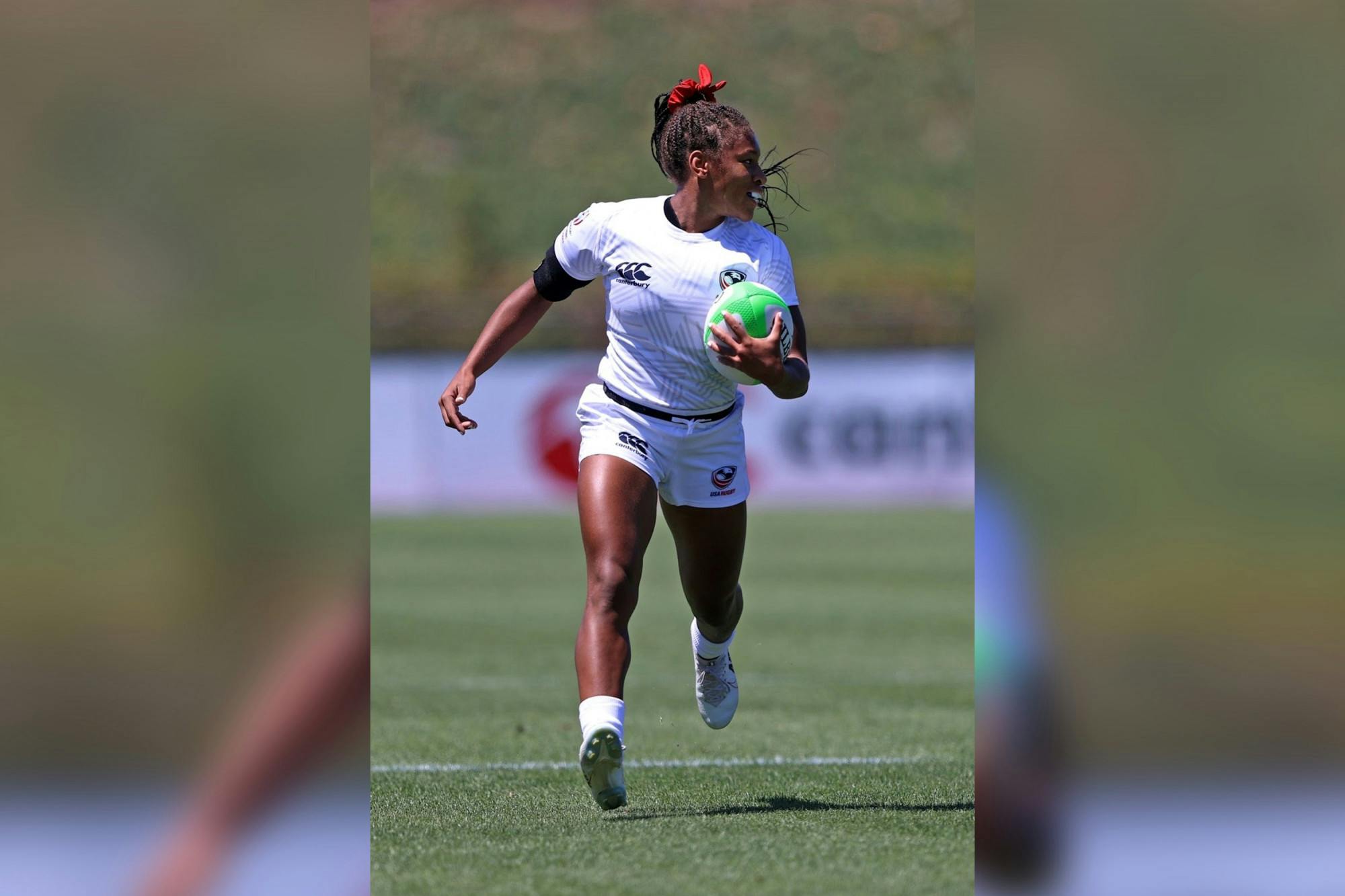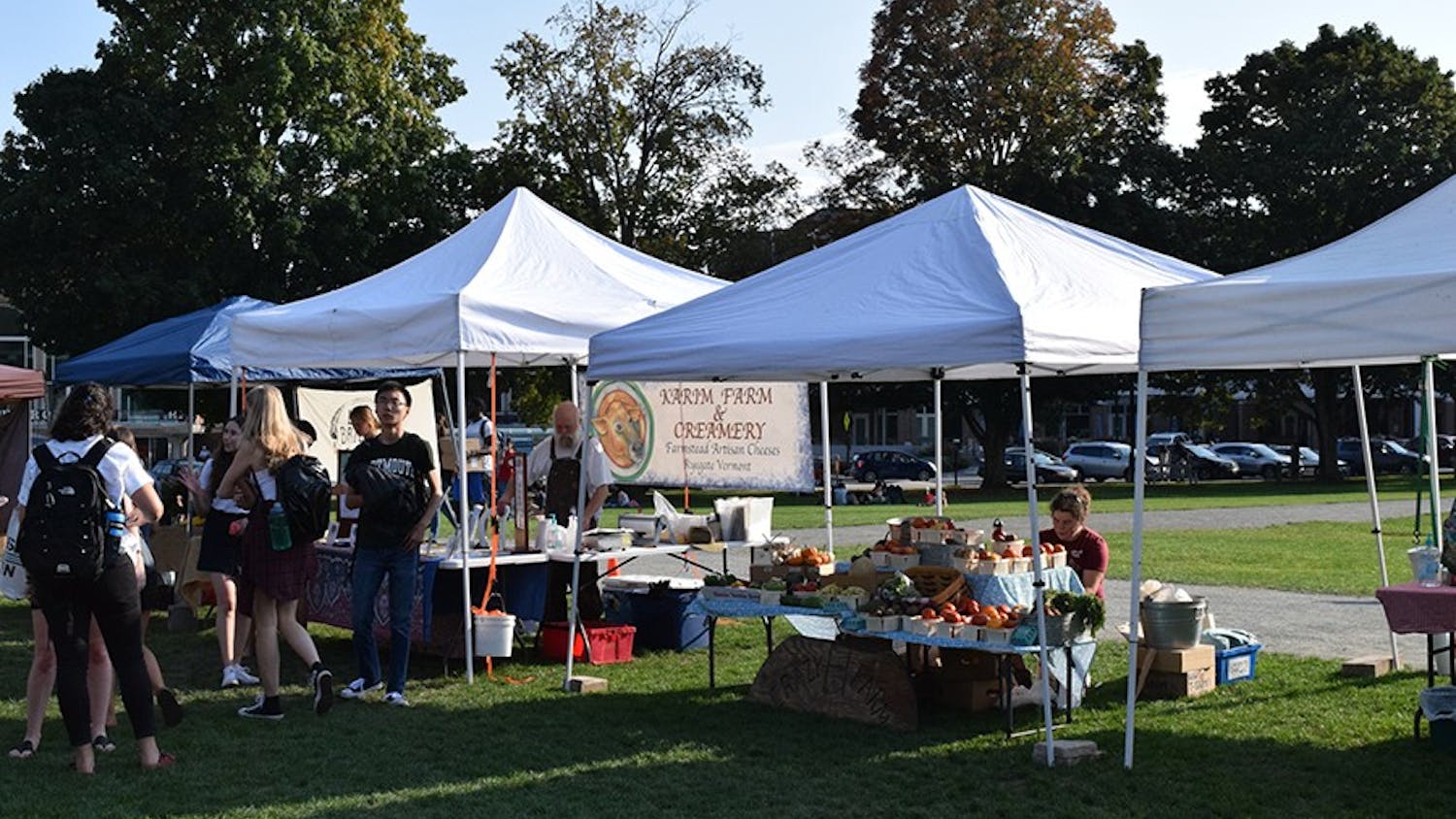This article is featured in the 2023 Commencement & Reunions special issue.
As Commencement approaches, scores of seniors will leave Hanover and start their post-graduation lives. For some seniors who are student athletes, however, their time at Dartmouth has already brought them to different corners of the world. Currently, there are two seniors on Olympic teams. The Dartmouth sat down with one such student, Olympic athlete and Dartmouth women’s rugby team member Ariana Ramsey ’22 to discuss her experiences as a rugby athlete on a national stage.
What got you into rugby?
AR: It was actually pretty random. I started in my sophomore year of high school. They set up a stand in my cafeteria during our lunch period, and they were very convincing to get people to come over and learn about club rugby and sign up. My friend decided that we were going to go, and then I just tagged along with her, and then it was pretty much only up from there. We went to the first practice, and we loved it. So we kept going back.
What do you study at Dartmouth, and what are your plans for after graduation?
AR: My major is economics and my minor is Chinese. I’ve always been interested in China’s manufacturing business and their wholesale products. After college, I’m going to train for the Olympics again in 2024. We just qualified when we were in Hong Kong, so hopefully I make the team again. After that, I hope to work in finance.
How has your Olympic career impacted your Dartmouth athletic and academic experiences?
AR: I think it has gotten me a lot of opportunities, as far as the awards I’ve been receiving. It also allows me to network easier with people — which includes faculty and students. I think it helps with meeting people and having something to talk about.
When did you become an Olympian?
AR: I became an Olympian in 2021. COVID-19 happened in 2020, so I missed my sophomore summer. I was taking my classes online while I was at the USA rugby training camp, which I had been doing since I was 17. One day, my coach called me while I was at the camp and asked if I wanted to stay for a chance to compete in the Olympics in 2021. I needed time to decide whether or not I wanted to stay. I mean, I wanted to do it, but I was just nervous about school and if I would be able to get back into things. But I ended up saying yes.
You participated at the Tokyo Summer Olympics in 2021, where you became the first Dartmouth women’s rugby player to compete in the Olympics. Tell me more about the experience, from your stay at the Olympic Village to your time on the field.
AR: When I first went, I thought it was going to be a lot of fun, which it was, but it was still so much hard work. We were still training every single day. I think my favorite part was the opening ceremony because that was the only time we got to see all of the athletes. The French team was behind us and then they started singing French songs and yelling at us, and we were having fun. Being at the opening ceremony in person, with the drones and lights, was way more magical than watching it on TV, and I was really grateful for that.
It was really odd playing our games without any fans watching, because we could only hear each other talking during our games. But I knew a lot of people were watching us from the livestream, so I was doing a lot more for the camera; I was waving at the camera and trying to be more interactive because I knew people were actually watching. But other than that, there was not a soul except our team and the other team and the staff.
How did you feel meeting other athletes off the field from across the country with very different experiences at the Olympics?
AR: It was really an honor to be meeting so many athletes. I met a lot of basketball players like Kevin Durant, Damian Lillard, Brittney Griner as well as Allyson Felix and Sydney McLaughlin-Levrone. I think everyone felt a sense of unity being surrounded by other people who are working hard to achieve their goals. That was very special for everyone, no matter what position they had or what sport they played.
Why did you choose to attend Dartmouth?
AR: I was initially planning to attend Pennsylvania State University because it was close to home. Once I started playing rugby, more doors started opening for me. For example, when I visited Dartmouth, the school was absolutely beautiful and the teammates were really nice. So that drew me in as well. Everyone seemed very comforting, warm and inclusive, which is really important for me. We were also a good team at the time. I watched a game that weekend and Dartmouth was blowing teams out like we still are today. I was like, I can't really go wrong with this. I had the grades to get in, and I knew I would be challenged academically. Dartmouth had everything that I wanted.
How has the D-Plan influenced your time on the Olympic rugby team and the Dartmouth rugby team?
AR: The D-Plan has been great. I love that we can just choose when to be on campus. The amount of terms that we can be “on” and the amount of terms we can be “off” is extremely helpful because it has allowed me to be both a collegiate and Olympic athlete. I was able to take off this past winter to train and compete with Team USA in Hong Kong. The D-Plan gave me the opportunity to do other things that I’m still interested in and then come back and still focus on school fully. I’m very grateful because I don’t have to split my time between school and rugby — that would be very stressful.
This interview has been edited and condensed for clarity and length.




